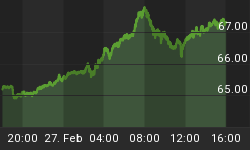It feels a little callous writing about Japan with respect to precious metals after the country suffered such a terrible tragedy. However, I think it's worth discussing because there's a lesson in it for all of us. In fact, I think the moral could be couched in terms of a warning.
Japan's Background with Precious Metals
It's commonly known in Japanese culture that citizens harbor gold to protect against unforeseen events. The gold isn't sold unless it's needed for an emergency. With respect to the Japanese government, the country's central bank is the 8th largest holder of the metal (including the IMF and GLD). Beyond investment, Japan represents about 6% of worldwide gold fabrication (excluding investment demand), the majority of which is in electronics. Scrap recycling has been heavy in recent years, while jewelry demand is low.
Regarding silver, the tiny island represents about 9% of global demand. Industrial uses comprise the biggest part of that, which includes the automotive industry, construction, medical uses and solar. Jewelry and silverware have minimal end-use, and photography, like most everywhere else, has been falling heavily.
Japan's Trend with PMs
While the percentage of Japan's buying to worldwide demand won't drastically change in reaction to the recent disasters, they, like several other countries, are pursing another tactic to get minerals. The government is considering revising its mining law, specifically when it comes to seabed mineral exploration and extraction. This is noteworthy because Japan hasn't touched its mining law in 50 years. To be sure, revisions will be stricter for permitting and monitoring, but the process will be streamlined for Japanese companies.
Why now? As an executive at Mitsubishi Materials put it, "it's an issue of national interest" because China, Russia, and South Korea are already exploring parts of the country's exclusive economic zone. They are undoubtedly feeling the pressure of not only wanting what they think is rightfully theirs, but also of wanting to capitalize on high metals prices.
The Lesson from Japan
Premiums for gold and silver there have risen in response to the disasters, which isn't surprising. Japanese investors scrambled for physical metals after the earthquake, immediately pushing premiums to three-year highs. And it wasn't just buyers in the earthquake, tsunami and nuclear-plant zones; those in less affected parts of the nation have been rushing to buy precious metals, too. The end result is that available supply has been glutted.
The reactionary buying in Japan could not just support metals prices, but push them higher. This is certainly due to the draining of supply, but also because it's complicating delivery and exacerbating fabrication problems. The country is a net gold exporter, but there may not be many planes and boats loaded with bullion leaving ports anytime soon, given that many modes of transportation are down and the distribution of more urgent food and other supplies is complicated.
This could dry up gold supplies elsewhere in Asia, as Japan exported 2.7 million ounces last year. While this is only roughly 2.3% of global supply, these ounces are concentrated in Asia, a region that has already seen many countries' citizens hoarding precious metals. If supply becomes scant across Asia, it's easy to see how this could light a fire under prices.
As Mark Pervan, head of commodities research at ANZ, said, "This is a buy-on-the-dip opportunity. Investors, not just Japan but globally, have been looking for a trigger to get back into the market. The rise in premiums in Japan could be it."
The lesson is this: When disaster strikes, it's almost certainly too late to buy. Not only will you pay a higher premium, you may have difficulty getting your hands on bullion. You have to purchase your insurance before adversity hits.
And the warning is this: We saw how supply dried up and premiums skyrocketed during the market meltdown of 2008. Europe saw the same result when Greece imploded. We're now seeing it happen in Asia due to Japan's woes. We keep seeing this picture repeat. While no one wants to bet on calamity, is the U.S. really immune from trouble? Are you?
Even if no natural disaster strikes North America, there's a certain hazard that's inescapable at this point. The abuse being heaped upon the U.S. dollar has not fully played out. Sooner or later the decline of the mighty greenback will affect almost every area of your life. In fact, what does your day involve that doesn't require money? Eating, showering, driving, working, shopping, entertainment - all of these will be grossly impacted by the demise of the currency unit used in this country.
The monetary base continues to explode. With no fanfare, it set another new record last week - $2.35 trillion. It's up 18.7% just since New Year's eve, and 39.2% since December 2008. These actions will have consequences. They will lead to a monetary earthquake.
Your heart went out to the people of Japan when you saw the pictures of the devastation from the earthquake. Will you be ready when the currency earthquake hits here? One of these days it'll strike, and then it will be too late to buy.
I hope you have sufficient asset protection to withstand the monetary storm that's building off our coast.
That asset protection is easy to come by - by loading up on gold, silver and large-cap precious metals stocks that can weather any economic storm. And in the meantime you'll make handsome returns... like the 90.4% gains Jeff secured for his mom's IRA, and his subscribers' portfolios. Read more on how he does it and how you can profit.















